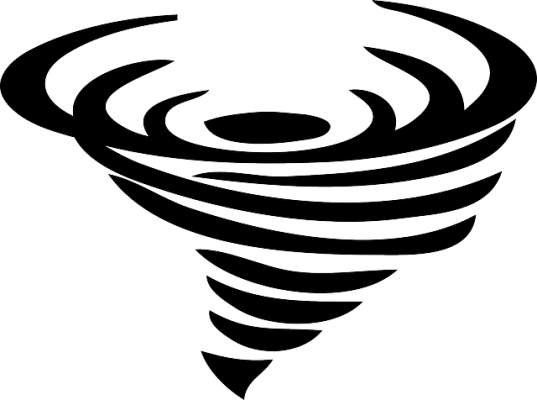[Note to the reader: "God" is used throughout as a signifier to point to wherever you put your worship. It could be conventional religions as I will mainly address, but you could just as easily replace it with Gaia if you "put your worship" there--if the environment is your ultimate concern. or you could replace it with polytheistic beliefs such as Hinduism. Or maybe you put your worship in the Universe, Consciousness, or Community. Consider that whatever your ultimate concern is, the concepts in this article can apply to that thing as "God" for you. Doing this will allow you to get the most from this article. -Jason D McClain]
Is Your Relationship to God Wrecking Your Relationship With God?
It’s a provocative question, isn’t it?
Why even ask it? It is fraught with predicable emotional triggers and will produce reactions that may blur the importance and the point of the topic at hand.
We could use your relationship to your "self" or your relationship to others or even your relationship to money. The fact remains that we could use any of those concepts--any of those signifiers--to get to what we are pointing at and we will use a couple of them as lead-in examples because of their familiarity--but it would not be as effective to stop there for our larger conversation; not as effective as getting to the very root of our relationship to and with our deepest and highest stages. But even more to the practical: we will use God for the simple fact that there is no concept or question more galvanizing—making us sit up in our chair and pay attention--than questioning our very relationship to and with the Divine.
So we use “God”.
Before we begin to explore the question, we need to lay the ground on which we will stand: stages of egoic and emotional development. Stages that we interpret the world through and react emotionally from. Stages through which we will interpret every aspect of our lives--events occurring around us, the actions of others as they relate to us, the world we navigate through politically, economically, romantically, and, yes, our spirituality and the nature of the Divine.
So if we are to examine our relationship to God (or “the Divine) then we must begin with an understanding of the lens we gaze through.
"God is like a mirror. The mirror never changes, but everybody who looks at it sees something different." --Rabbi Harold Kushner
From pre-personal to personal to trans-personal. From vengeance to justice to grace. From pre-rational to rational to trans-rational. From ego-centric to enthno-centric or gender-centric or nationalistic to world-centric. From unconscious to conscious to super-conscious. These are just some of the ways we can label the grossest stages of development of the Self—and they are stages of increasing wholeness and increasing embrace. Each stage transcends, yet also include the benefits of the former. Each is noted for its increase in capacities and increase in the ability to hold an ever-increasing number of perspectives. We could also think about these stages as an expansion of what an individual can identify with or as. From ego-centric to ethno-centric / gender-centric / nationalistic to world-centric; identifying as just an individual to identifying as a member of a community or collective of individuals to identifying as a member of a global community—a citizen of the planet and a member of its ecosystem. Plainly put: our stage of self-development will determine our world-view—and that world-view will evolve over time. And that evolution will have a directionality.
Human development can be divided into three major phases: pre-conventional, conventional and post-conventional, or pre-personal, personal and transpersonal (Wilber, et.al., 1986). This applies to the development of cognition, morality, faith, motivation and the selfsense. The infant enters the world unsocialized, at a pre-conventional stage, and is gradually acculturated into a conventional world-view, whether it be religious or secular. A few individuals develop further into post-conventional stages of post-formal operational cognition (Pfaffenberger, et.al., 2009), post-conventional morality (Sinnott, 1994;), universalizing faith (Fowler, 1995), self-actualizing and self-transcending motives (Maslow, 1971), and a transpersonal self-sense (Cook-Greuter, 1994; Wilber, 1980, 1983, 20001).
-Frances Vaughn, Journal of Transpersonal Research, 2010
We could say that one of the primary practices (as well as one of the primary indicators of personal evolution) is the ability to take on an ever-increasing number of perspectives; the ability to understand—even if not agreeing with—an ever-increasing number of perspectives or “views” of or “from” a given place.
And that lens—or lenses—is the filter through which we view the world as well as being the platform we will likely react from. This is not a box we can put ourselves or others in. It is not a classification as rigid as a “type”. Think of it more as a probability: a weather forecast, or a general orientation within high odds. Think of it more as a lump or a wave. But even still, the fact that we will likely interpret through and react from our “stage” of development of the “self” is hard-wired as a probability can get.
And, the endeavor we call “personal evolution” is the process of activating movement and moving through those stages.
Why is this important?
In the process of personal evolution we have both the mechanisms to create, and the path to enjoy, true peace within--and to reduce conflict without. An ever-expanding ability to hold an ever-increasing number of perspectives leads to a life that experiences greater ease, reduced fear and reduced anger, greater empathetic capacities, increased self-acceptance, increased capacities to handle whatever life may throw at you—and respond more resourcefully, and ultimately, leads to an aligned, purpose-filled and full-filled life.
As within, so without.
In recent history, it has become commonplace in personal development circles and communities for us to realize that our relationship to ourselves is very important—it is an accepted fact that it will determine a great deal of our experience materially, inter-personally, and emotionally. It may be thought of as self-concept, or self-esteem and self-acceptance, self-care, and self-love. This shows up in particularly high-relief/ particularly sharp in contrast in work with relationships where it is clear to more and more people (whether we like it or not) that our relationship with our self will determine our relationship dynamics with others: how well do we honor boundaries both for ourselves and for others? Do we feel we deserve to be happy and deserve to have a relationship in which we are treated well—with kindness and respect and love? How easily and openly do we communicate?
In essense: the degree of health we enjoy in our relationship with ourselves (and to our “self”) will have a great deal of influence on the degree of heath an vitality we enjoy in relationships with others—and life in general.


